Rehabilitated posthumously. "Fun Life" by Pavel Dybenko (part of 1)
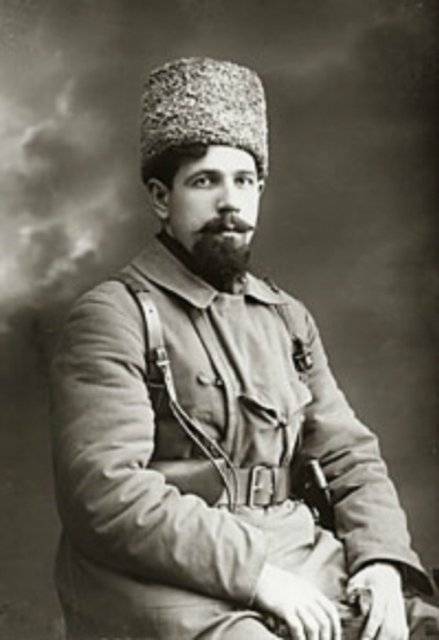
On the life of Pavel Efimovich it was possible to remove a good blockbuster. And it would be all for the box office triumph: the impoverished childhood of the hero, two wars, the love of a powerful woman, cowardice, massacres, an impressive career, the accusation of espionage, the death sentence and rehabilitation. Dybenko lived a bright, albeit ambiguous life. A memorial plaque and a memorial stele were installed in his honor, the streets were named after him, and in 1969 and 1989, stamps with the image of Pavel Efimovich were issued.
Since childhood for the revolution!
The future political and military leader was born in February 1889 of the year in the small village of Lyudkovo, in the Chernihiv province (now it is a feature of the city of Novozybkov, Bryansk region). His family was not remarkable. Paul’s parents, he said, were ordinary farm laborers. According to the memoirs of Alexandra Kollontai, the wife of Dybenko, the home of his parents was a modest "hut" in which many icons hung. Based on what she saw, she concluded that her father-in-law "is hardly in the soul for Soviet power."
Paul's life was no different from the life of his peers. Together with his parents, he began working in the field from childhood. According to his memoirs, he “helped to fertilize and carry fertilizers, to graze cattle.” He also received a minor education. The ABC and the account he taught the priestly daughter. True, she was far from the ideals of modern pedagogy; therefore, to careless students she often got lost in it. And both morally and physically. Here is what Dybenko recalled in his autobiography: “For six years I was given to study for my father’s daughter, who conducted classes in a cold kitchen where calves and young sheep were placed at the same time. Popovna-teacher used hand-beating and beating with a ruler almost daily in the methods of upbringing ... ". The psychological trauma received in childhood tormented him all his life. And in the short autobiography that Dybenko left behind him, he almost he blamed his troubles for “priests.” He also justified his cruelty towards all other people with hatred of the clergy.
Studied Pavel Efimovich bad. Therefore, in the three-year city school was delayed longer than classmates. Because of his failure, he was left for the second year. However, this did not prevent him from taking part in the riots of 1905 of the year. And here is the discrepancy. It is known that in the city college he ended up in 1899 year. Even with the low academic performance, Dybenko should have completed it in 1903 or 1904. But what is written in the autobiography: “Being a student of the city school in 1905, without giving an exact account of what exactly is happening, I take part in the strike movement of students of the real, technical and city school, for which the Starodubskiy district court was held accountable. At trial, he was acquitted. ”
This gave historians a reason to doubt Pavel Efimovich’s “revolutionary childhood”. According to some researchers, he specifically distorted the facts in order to prove his loyalty to the Bolsheviks. So in the modern world often do football players who dream to get (or have already fallen) in the top club. At the presentation, they always say that “from childhood” they rooted for this particular team. Although everyone understands that these are just pretentious words. Probably, the example is not entirely correct, but still. The same thing happened in the life of Dybenko. When he was spun more powerful by the whirlpool of events in the country, he had to say that he was “from childhood” for the revolution. Of course, numerous historians tried to find at least some documents proving Paul’s participation in the 1905 events of the year. But nothing is found. Therefore, there is, of course, a reason to doubt the veracity of what was written.
When Dybenko was seventeen years old, he was attached to work in the treasury of the city of Novoaleksandrovsk. A relative of Paul worked here, who took him to his place. But Dybenko failed to make a career in public institutions. According to him, from there he was fired because he was in an illegal organization. However, this fact is also being questioned. Since there is not a single document proving his “illegal” activity. According to researchers, Pavel Efimovich was expelled because of the negligent attitude to work.
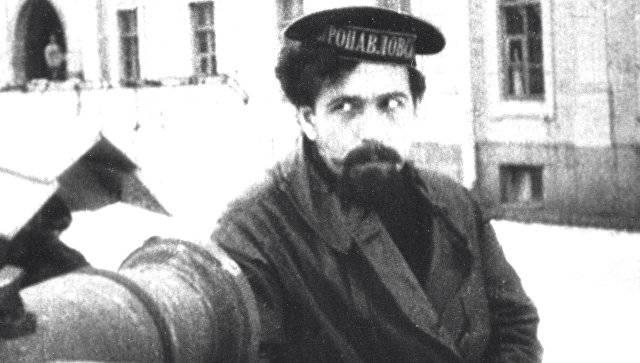
Once “free”, in 1907, Dybenko joined the Bolshevik circle. It was then that the police took control of him. Pavel Efimovich had nothing to do with the law enforcement officers, so he decided to “get lost” in the Baltic States.
The trail of Pavel Efimovich in 1908 year showed up in Riga. Here he worked as a loader in the port and studied electrical engineering at special courses. But it could not go on for a long time, given the character of a nineteen year old guy. He was drawn to adventure. And besides, employment at the port was seasonal. And once he was left without work and without money.
According to the memoirs of Paul's acquaintances, at that time he tried to somehow earn a living by participating in fist fights. Therefore, quite often Dybenko returned to the working hut with broken fists and face. But whether this is true or not is not exactly known. In general, information about his life in the period from 1908 to 1911 is quite small. But it is known that in 1911 Dybenko diligently avoided conscription. He managed to hide for about six months, but still one day he was arrested. Then they were sent to the Dvina penalty ship, which served in the Baltic Military navy. After some time, Dybenko was in the ranks of students of a mine school. After that, Pavel Efimovich, having received the rank of non-commissioned officer, was sent to the battleship "Emperor Paul the First" in Helsingfors (now - Helsinki, the capital of Finland). On the ship he received the position of a ship electrician. Here he met again with the Bolsheviks. And without thinking twice, Dybenko became a member of an underground group.
Until 1914, he was relatively quiet, preparing for demobilization. But the First World War began, so he had to continue pulling the strap. Although officially Pavel Efimovich took part in the war, in fact he was incredibly lucky - he passed by serious battles on the water.
In the memoirs "From the depths of the royal fleet to Great October", as well as in his autobiography, Dybenko again deceitful, trying to appear before the reader as a real hero. Therefore, in his literary works he called himself "the leader of the uprising of the sailors." In fact, there was no large-scale uprising. Dybenko hit several colleagues at the night meeting to shout out a couple of anti-government slogans. When the authorities found out about this incident, arrests of the most active sailors followed. Pavel Efimovich did not escape punishment. First of all, he was written off from the battleship, after which he was assigned to a volunteer battalion. In its composition Dybenko in 1916 year and went to Riga. Here he still had to make war. But soon another incident occurred - the authorities learned about his anti-war agitation among his colleagues. This time Pavel Efimovich did not manage to avoid imprisonment. In the spring of the same 1916, he was detained for a couple of months in the military correctional prison in Helsingfors. For such a short time, Dybenko was able to pull himself together and that is why he was released as soon as the sentence came to an end. Moreover, Pavel Efimovich was not left without work. As soon as he was free, he was appointed to the position of batalier (responsible for food, clothing and other supplies) of one of the military transport ships. located in the port of Helsingfors. Having settled down a bit in a new place, Dybenko took up the old one - he began to conduct underground revolutionary activities among his fellow servicemen.
Despite this, he once managed to "distinguish himself." When the Germans began to break through to Petrograd, Pavel Efimovich ... no, did not lead the volunteer naval battalion, which was thrown at the elimination of the threat. Instead, Dybenko managed to persuade several hundred sailors, as well as soldiers, not to take part in battles at all. Because of this, the battalion was quickly disbanded, many were arrested. Sukhoi managed to get out, perhaps, only Dybenko. He unexpectedly "fell ill" and ended up in the hospital. The “miraculous recovery” took place only a couple of months later, when the situation around the sailor’s demarche had subsided a bit. After returning to the front, Pavel Efimovich was sentenced to forty days in the guardhouse. We can say that he got off easy.
With the beginning of the February Revolution, Pavel Efimovich found himself in the whirlpool of events, that is, in his place. He was well aware that the situation in the country is now the most favorable for a man of his mentality and character.
Under the safe wing
When the February revolution began, Pavel Efimovich was noted in the armed uprising in Petrograd. And in March, he became a member of the Helsingfors Council of Deputies of the army, navy and workers. Further more. Already next month, Dybenko became chairman of the Central Committee of the Baltic Fleet. The first thing he did, of course, openly admitted that the Provisional Government was the main one in the country. And, accordingly, pledged to fulfill the will of the new government. However, soon Dybenko repudiated his words. He, along with Antonov-Ovseenko, participated in an anti-government speech in July 1917 of the year. The Provisional Government managed to cope with the rebellion.
October 1917 was one of the most important months in his life for Dybenko. And Pavel Efimovich did not miss his chance. He managed to take part in the battle with the German fleet near the island of Dago, became the commander of the sailor army, gave the order to the Aurora to open fire. Career Dybenko began to actively rush up. Of course, the Bolsheviks appreciated the contribution of Pavel Efimovich to the common cause, but, as they say, there was one nuance. At the very top, where the party elite lived, Dybenko had a powerful patron, Alexandra Mikhailovna Domantovich, and Kollontai in marriage. It was she who by all means tried to push her sailor up the career ladder. Thanks to the efforts of Kollontai, Dybenko already at the end of October became a member of the Naval Collegium. And only a month later, Lenin appointed a sailor as People’s Commissar for Maritime Affairs.
Dybenko, of course, lost the sense of reality. He could hardly have imagined that the spring meeting with Alexandra Mikhailovna would turn into such a generous gift of fate for him. She struck him with her mind and talk about freedom and disobeying the authorities. The sailors listened to her, literally opening their mouths with delight. Pavel Efimovich did not stand either. After the agitation speech, he picked up the woman and carried her through the ladder. From this began their revolutionary romance. Alexandra Mikhailovna made an entry in her diary about a meeting with Dybenko: “absent-mindedly looked around, playing with the inseparable huge revolver of blue steel.”
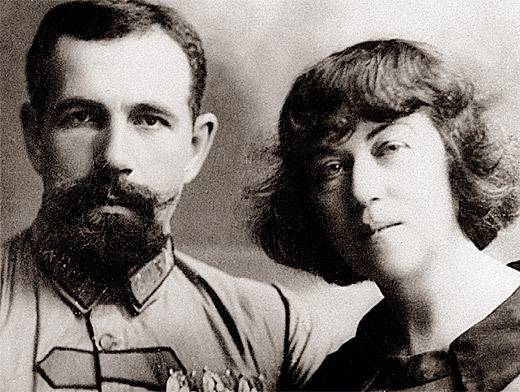
Having received unlimited power and feeling the power behind him, Dybenko, as they say, opened up. He was not interested in the reasons for his so rapid rise. But Vladimir Ilyich did not listen to Kollontai because Dybenko fully complied with the admiral's post. More precisely, the semi-literate sailor did not fully correspond to her, but this was unnecessary for Lenin. Specifically, at that moment he needed a devoted soldier who would unconditionally fulfill any order. And this role Dybenko began to perform with a bloodthirsty frenzy. Pavel Efimovich, like a wolf in a sheepfold, began to "cut the counter." He, along with his sailors, began cracking down on navy officers. But before that, they visited the imperial wine cellars.
According to eyewitness recollections, Dybenko and his “guardsmen” beat the warrant officers and lieutenants with sledgehammers. They prepared another fate for the senior officers — they were drowned in icy water, mocked as best they could, not allowing them to get out of the ice. According to rough estimates, several hundred people were killed in that massacre. When the slaughter was over, Pavel Efimovich hung up a thick gold chain and began to ride horses on the parade ground littered with the corpses of officers.
The only woman among the party elite knew perfectly well the deeds of her sailor. But she looked at it through her fingers and supported her in every way. In her letters she often repeated: “try to be closer to the center ... in front of your eyes”.
This is how the poetess Zinaida Gippius described Dybenko: “Tall, with a chain on her chest, looking like a bathhouse keeper, a burning brunette.”
There is a memory of Pavel Efimovich of one of his sailors: “In full proportion with the heroic build, he had massive arms and legs, as if cast from iron. The impression was complemented by a large head with large, deeply carved features of a swarthy face with a thick curly beard and curly mustache. Dark brilliant eyes burned with energy and enthusiasm, exposing remarkable strength of will ”.
And this is Kollontai’s diary passage: “This is a person who is dominated not by intellect, but by soul, heart, will, energy. I believe in Pavlusha and his Star. He is an eagle. I love in him the combination of strong will and ruthlessness, forcing him to see in him “cruel, terrible Dybenko ...” ”. She made this entry in the "romantic" 1917 year. A couple of years later, Alexandra Mikhailovna changed her mind about the “eagle” and wrote: “Dybenko is an undoubted nugget, but you cannot immediately make these violent people commissars, give them such power. They can not understand what is possible and what is not. They feel dizzy. ”
But this epiphany will occur only in the 1919 year. In the meantime, all the doors were open before Dybenko, and he enjoyed his incredible power.
To be continued ...
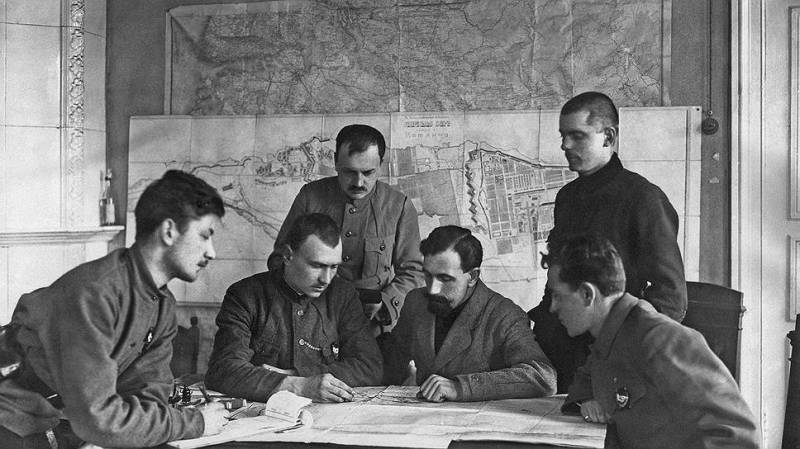
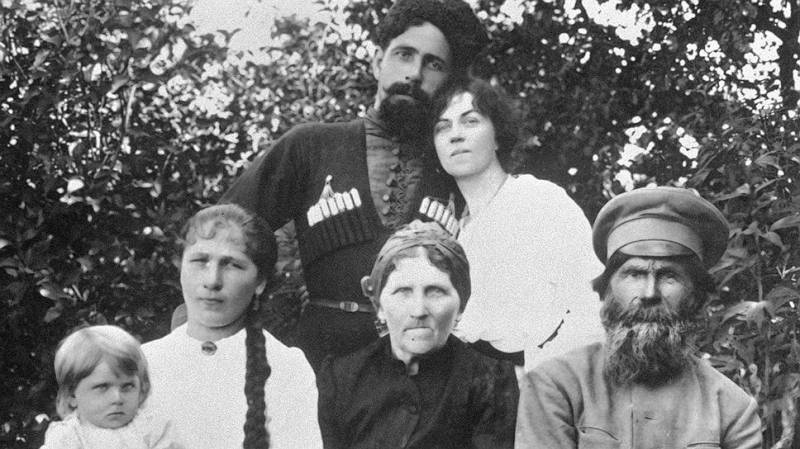
Information